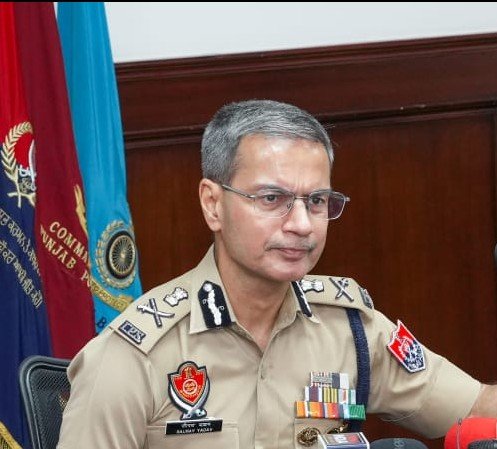Punjab – In a significant technological leap in its battle against narcotics, the Punjab Police is actively planning to introduce GPS-enabled anklets for major drug smugglers released on bail. This innovative surveillance measure, drawing inspiration from similar successful implementations in Jammu & Kashmir for individuals accused under the Unlawful Activities Prevention Act (UAPA), aims to revolutionize the monitoring of high-risk offenders and severely cripple the state’s drug trade.
Director General of Police (DGP) Gaurav Yadav, addressing the media, elaborated on this cutting-edge proposal. He emphasized that the GPS anklets would provide continuous, real-time tracking of notorious smugglers, effectively limiting their ability to re-engage in illicit activities while on bail. The DGP clarified that the implementation would be on a case-by-case basis, with meticulous legal consultation to ensure adherence to privacy laws and obtain necessary orders from competent courts. This careful approach underscores the commitment to upholding legal frameworks while deploying advanced surveillance technologies.
The rationale behind this initiative stems from the persistent challenge of drug smugglers resuming their operations upon release from judicial custody. By monitoring their movements with GPS trackers, law enforcement can gain invaluable insights into their networks, identify potential rendezvous points, and swiftly intervene if any suspicious activity is detected. This proactive surveillance is expected to act as a significant deterrent, making it exceedingly difficult for “big fish” in the drug trade to orchestrate their operations.
Beyond the GPS anklets, the Punjab Police is strategically integrating other technological advancements into its anti-drug campaign. An Artificial Intelligence (AI) software, building upon the foundation of the Punjab Artificial Intelligence System (PAIS) launched in 2019, is under development. This AI-powered hierarchical database will centralize information on arrested drug smugglers across districts, facilitating forward and backward linkages in investigations. Such a system will enable investigators to identify patterns, unearth hidden networks, and trace the origins and destinations of drug consignments with unprecedented efficiency. Furthermore, the state is poised to deploy advanced anti-drone systems along the Indo-Pak border by August. This critical technology is aimed at detecting, identifying, and neutralizing drones, which have become a common vector for cross-border smuggling of drugs and weapons, thereby disrupting a major supply route.
The multi-pronged approach extends beyond technology to include a humane aspect for small-time drug users. DGP Yadav reiterated that these individuals are not to be treated as criminals but as patients requiring rehabilitation. Over 1,100 individuals caught with small quantities of drugs have been sent for de-addiction and rehabilitation under Section 64-A of the NDPS Act. Police teams have also actively convinced over 12,000 drug users to seek treatment at de-addiction centers and Outpatient Opioid Assisted Treatment (OOAT) clinics, often by engaging village elders and panchayats to build community support and trust. A novel “Each One Adopt One” program further personalizes rehabilitation, where every police officer commits to assisting one drug user through their recovery journey.
The ongoing “Yudh Nashyan Virudh” campaign has already yielded significant results. Over 13,000 individuals have been arrested, and more than 8,300 FIRs registered under the NDPS Act. Seizures include substantial quantities of heroin, poppy husk, opium, and synthetic drugs, indicating a severe disruption in the supply chain. The busting of 48 hawala rackets and the recovery of over ₹10 crore in illicit funds have further crippled the financial infrastructure of the drug trade. The conviction rate in drug-related cases stands at an impressive 90%, reflecting robust legal prosecution. While acknowledging that drug availability still persists in certain pockets, DGP Yadav asserted that the “easy availability” of drugs, once a prevalent concern, has been significantly curtailed. This relentless pursuit of a “Nasha Mukt Punjab” combines aggressive enforcement with compassionate rehabilitation and cutting-edge technology, aiming for a long-term solution to one of the state’s most pressing challenges.
#GPSAnklets #DrugSmuggling #PunjabPolice #DrugEnforcement #NarcoticsControl #AIinPolicing #AntiDroneSystems #NashaMuktPunjab #TechnologyInLawEnforcement #DrugRehabilitation #PunjabAgainstDrugs




